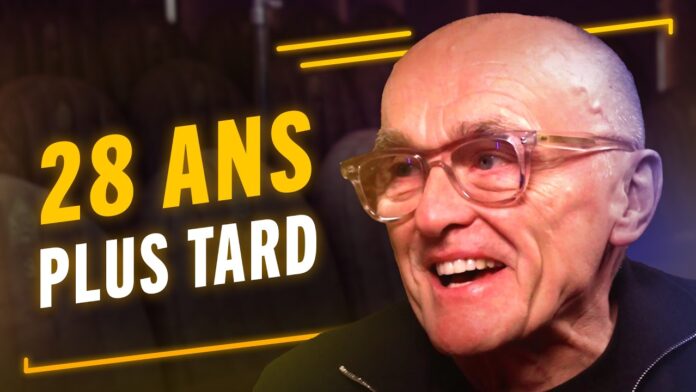The Oscar-winning director talks risk, regret and the ‘punk’ spirit behind 28 Years Later
Danny Boyle, the director of Trainspotting, Slumdog Millionaire and the upcoming 28 Years Later, knows how to make films about moments of collapse and renewal. At 68, the veteran British director says he can’t ignore the turbulent state of the world, and nowhere is this more evident than in his new zombie sequel.
“The first film was about how quickly British cities could empty out,” Boyle explains, referring to the 2002 classic 28 Days Later. “Post-Covid and post‑Brexit, that doesn’t feel like fiction anymore. The new film taps into that.”
28 Years Later, part one of a proposed new zombie trilogy, shows a Britain ravaged by plagues and isolation. Newcomer Alfie Williams stars as 12‑year‑old Spike, a boy torn between the safety of Holy Island and the terror of the infected mainland. The film doesn’t just revisit old ground – it rebuilds it. “It’s more of a renovation than a sequel,” Boyle explains. “A fresh build over an existing property.”
Sony has backed the project with two films fully financed. The second, The Bone Temple, directed by Nia DaCosta, is already finished. But the fate of the final instalment rests on how well this first chapter performs. “If this doesn’t work, we might never complete the story,” Boyle says.
The director knows risk well. In 2008 he made Slumdog Millionaire, a low‑budget film about a boy from the slums of Mumbai that went on to win eight Oscars. “We wouldn’t be able to make that today,” Boyle admits. “The idea of going to another culture, making a film within it as an outsider… it was a different era. Today it wouldn’t get financed.”
Although proud of Slumdog, he is wary of its “cultural baggage”. “We tried to make it with a big Indian crew, within that culture, but you’re still an outsider. Times have changed, and that’s right. You have to reflect, and adjust.”
Through it all, Boyle finds room for optimism. “Have you got kids?” he asks suddenly. “I’ve got three. I think that’s progress. The younger generation are an upgrade.”
The director came of age in the era of punk music and arthouse film, inspired by its rebellious energy. “The last time Lou Reed spoke publicly, he said: ‘I want to blow it all up’, because he was still a punk at heart,” Boyle recalls. “That’s the mentality I try to carry. Stay fluid, stay challenging. Never fix yourself too firmly in one place.”
But he doesn’t just want to shock and disrupt. “I value the popular audience,” he adds. “I want to push boundaries, but take people with me.”
That tension is palpable in 28 Years Later, which captures both terror and resilience. Its young hero, Spike, embraces a messy, frightening future — a reflection of the times, and a hint of the hopeful outlook Boyle still clings to.
“Maybe ‘hope’ is a strange thing to ask for in a horror film,” he concedes. “But we all need something to cling to, whether in films or in life.
